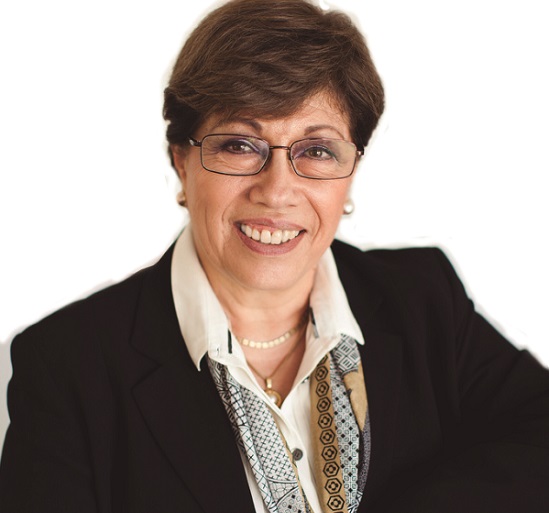
- President, Compañía Minera Poderosa (Mining)
“The economics of a mine—any mine—creates a very deep symbiosis with the local area… For instance, at Poderosa, we provide employment—counting our own employees and outsourced workers who do some specific jobs—to over 3,500 people.”
Summary
In this interview, Eva Arias discusses her distinguished career as Executive President of Compañía Minera Poderosa, as well as the long history of her family in the Peruvian mining industry. She begins by reflecting on her formative influences—her parents, both of whom taught her the values of hard work, integrity, and compassion—and her early career in architecture. Along with two college friends, Arias opened a small architecture firm and construction company that operated very successful for several years, making dividends of over USD one million. It wasn’t until an economic crisis hit in 1977 that Arias’ career trajectory shifted. “The entire economy was shaken by this crisis,” she explains, “so I decided to work for my family, lending a hand at a difficult time.” Arias’ background in engineering and architecture served her well when she joined her family’s mining business. She was also quite familiar with the ins and outs of the industry, having grown up visiting camps and mines with her father.
Indeed, her father’s influence proved crucial to how Arias’ managerial style in many senses. In the interview, Arias explains her father’s commitment to mine workers: “He would never detach himself from what happened at the mind… He was a sort of corporate social responsibility pioneer.” She describes how, during periods of crisis, her father would ensure the continuous supply of food and other necessities to miners and their families working at the camps during periods when the entire country experienced food shortages. This relationship with the mine workers, Arias explains, is crucial: “The economics of a mine—any mine—creates a very deep symbiosis with the local area… you just can’t close down and be done, because you’re not just talking about a business in economic terms: a lot of families depend directly or indirectly on this business.” This deep commitment to workers helped Ponderosa navigate Peru’s turbulent environment.
When Arias took over as Executive President, she introduced Continued Improvement Circles, which analyze mine issues and find solutions to enhance productivity and improve savings. In the interview, Arias discusses several interventions that Ponderosa made in this area—including the introduction of high-voltage cables to reduce energy costs and the introduction of new technologies to facilitate communication to facilitate communications at the mine. Arias also discusses the challenge of working in an industry where prices are set by international markets, and thus vulnerable to unexpected shocks, and how the company has worked to establish good relationships with banks and lenders. She explains how the company remains competitive, despite the fact that it has not pursued an internationalization or even regional expansion, and also discusses the critical issue of sustainability and environmental degradation in the context of mining.
Arias concludes the interview by sharing her views on the interplay between government and business, and particularly, the important role played by unions and trade associations in mediating between industry and government.
Video Clips by Topic
Family Business
Government Regulation
Eva Arias, President of Compañía Minera Poderosa, describes her experience with the Peruvian government around the highly regulated mining industry, securing permits, union involvement, and trade associations.
Responding to Crises
Eva Arias, President of Compañía Minera Poderosa, describes how she solved the debt crisis her company faced in the 1990s by engaging with a debt restructuring plan, regaining the trust of her creditors and suppliers, and reorganizing the mine’s operations.
Sustainability
Eva Arias, President of Compañía Minera Poderosa, discusses the importance of following environmental regulations and explains how the mine’s environmental impacts are mitigated and remedied, not neglected.
Interview Citation Format
Interview with Eva Arias, interviewed by Andrea Lluch, March 15, 2018, Lima, Peru, Creating Emerging Markets Project, Baker Library Historical Collections, Harvard Business School, https://www.hbs.edu/creating-emerging-markets/Pages/default.aspx.
